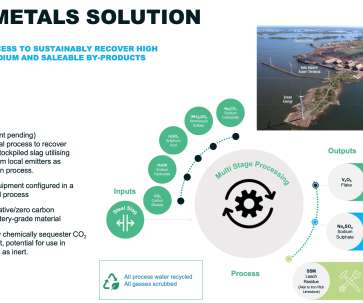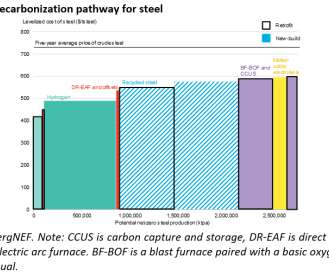Vanadium Recovery Project targeting significant increase in vanadium production in Europe with low emissions
Green Car Congress
MARCH 27, 2022
The VRP won’t have any waste streams and will set a new precedent for circular economy practices in metals processing. Currently, approximately 75% of global vanadium supply is sourced from China, South Africa, and Russia. The Vanadium Recovery Project (VRP) is targeting a 1.5

















Let's personalize your content